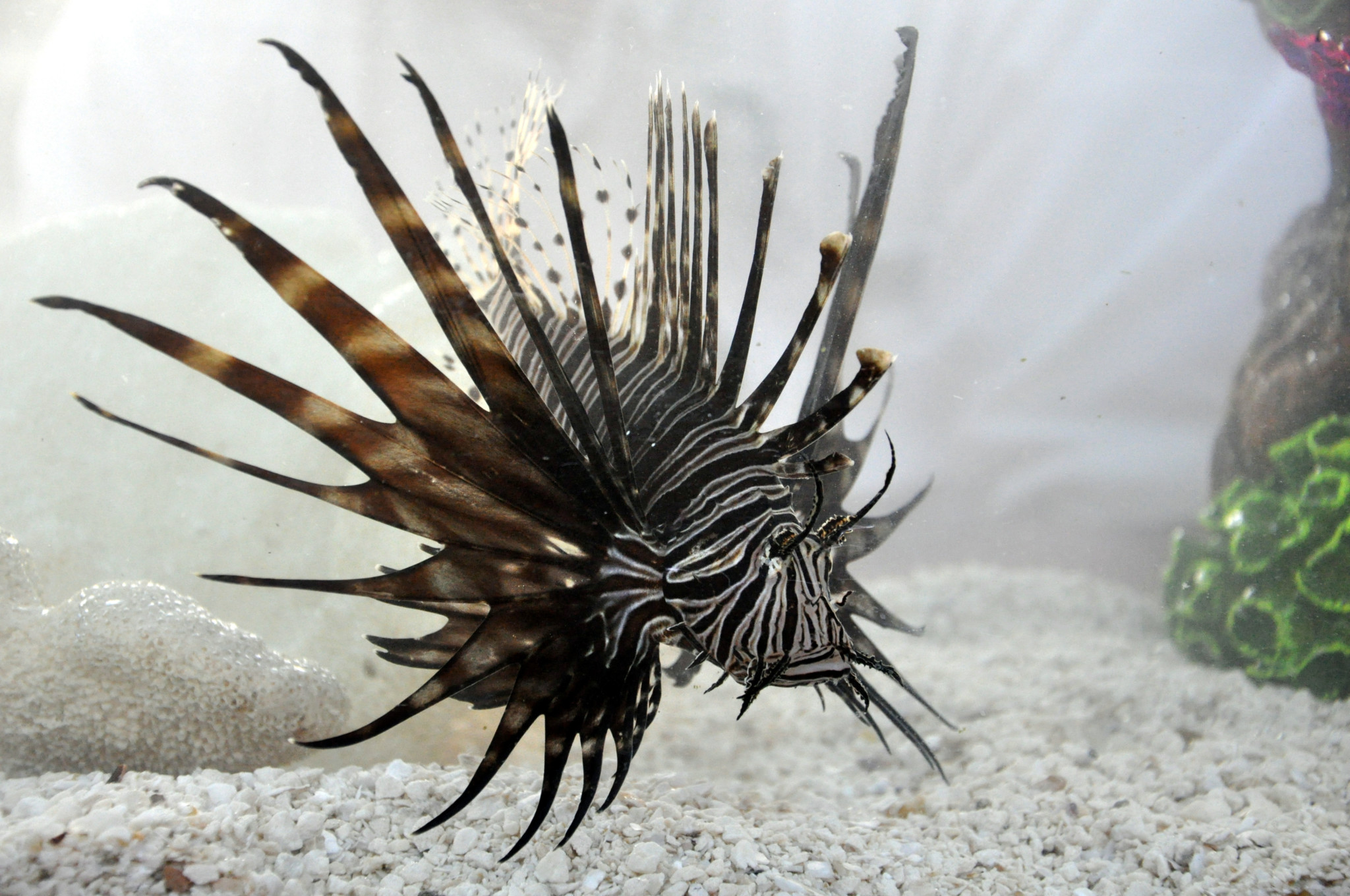Permit will allow for 100-trap test runs in effort to cull the invasive species
Fishermen in the South Atlantic might soon be testing a new tool to fight off the growing population of invasive lionfish in the region. After years of waiting, NMFS is finally giving the green light on a permit to set out 100 cages to study whether traps can put a dent in their numbers.
The Florida Fish and Wildlife Conservation Commission applied for the exempted fishing permit, proposing to test various modifications to wire spiny lobster traps to harvest lionfish from South Atlantic federal waters.
The study intends to examine the effectiveness and performance of modified trap designs for capturing lionfish, with the goal of identifying the best modification to maximize lionfish catch and reduce bycatch of other species. Traps would test various funnel and escape gap sizes and locations, in addition to bait types.
The Florida Keys Commercial Fishermen’s Association proposed the idea back in 2015 after they discovered their spiny lobster traps were being overrun by lionfish. But the group withdrew its application earlier this year after losing financial backing for the project because of the long delays in waiting for approval.
While trap testing will take place in the Florida Keys, other states in the Gulf of Mexico and up the East Coast will be taking notes.
“The things learned from this work regarding the use of traps to capture lionfish, particularly in deeper water, could certainly benefit South Carolina and other states,” Mel Bell, a South Atlantic Fisheries Management Council member and the South Carolina Department of Natural Resources fisheries management director, told the Post and Courier.
The public comment period on the proposal is open now through Aug. 1.







